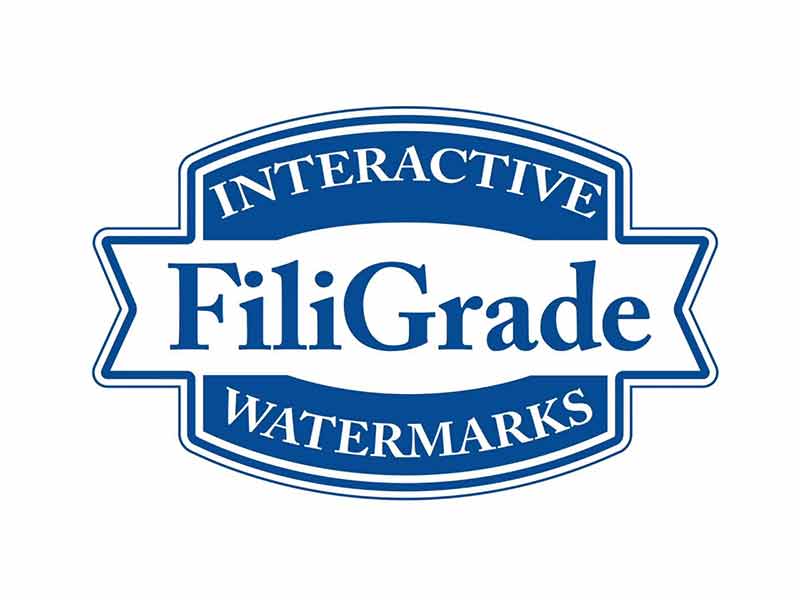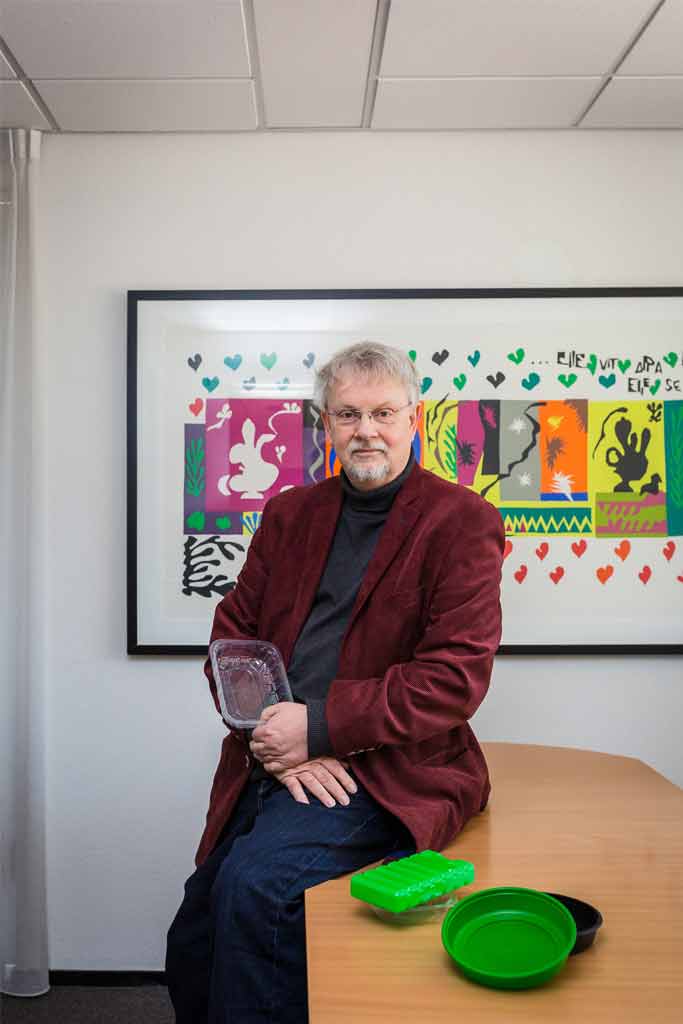
Digital Watermarks
FiliGrade
Digital Watermarks
FiliGrade’s founder and CEO, Johan Kerver, developed a watermark in 1995 to protect photographs from being reproduced. The concept was a success, and soon a laminate manufacturer approached Kerver. Laminate has a specific type of print, and popular prints are often imitated. This imitation print seems initially indistinguishable from the original, but the quality is usually much lower. By applying a watermark during the production process, you can check with a smartphone whether the print is genuine or an imitation.
Today, FiliGrade is a regular supplier for international laminate producers. The next step is to adopt this technique for separating plastic waste. Plastic is a fantastic product, but it should not end up polluting our environment. Europe has agreed that by 2025, half of all plastic packaging must be recycled.
Kerver: ‘There’s still a lot to be gained through separating waste. Milk cartons, soda bottles and cans are immediately sorted. Everything else is then subdivided into five or six waste flows, and that’s it. That’s where FiliGrade comes in. By adding digital codes to quality food packaging, it is easier to distinguish the packaging from other types of plastic. Instead of recycling this plastic into low-value products such as verge markers, you can recycle it for higher-quality food packaging, for example.’
International awards
FiliGrade has, together with machine manufacturer Senro, built a sorting machine whereby FiliGrade’s camera and software recognise the various types of plastic through watermarking and sorts them accordingly. This allows different types of plastic to be collected separately. This is interesting for the food services industry, which currently only uses new plastic. Moreover, FiliGrade’s solution has been awarded multiple prestigious international awards. This has led to interest from the largest global top-brand food companies, such as Coca-Cola USA.
The future
FiliGrade is working hard to break through on the European market. This upscaling is required to gain the interest of the largest food producers in the world. Within Europe, the Netherlands is the perfect location for the first pilots. Furthermore, there are numerous other sectors where the watermarks can play an exciting role in many applications. With its plastic recycling application, FiliGrade expects to make an international breakthrough in plastic recycling, thereby making a significant contribution to a better world.

